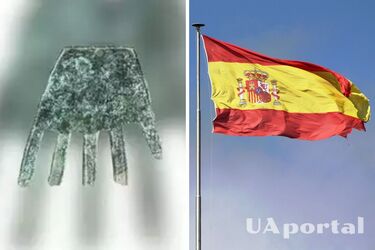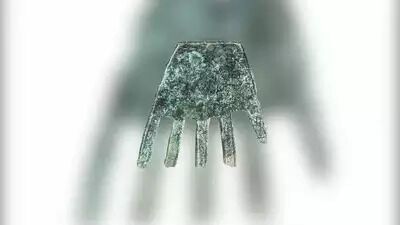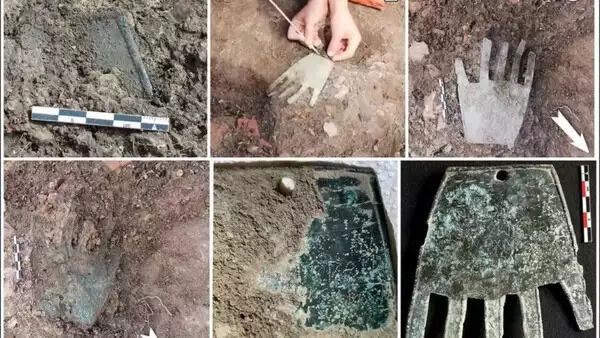2000-year-old bronze hand with mysterious inscriptions discovered in Spain (photo)

Archaeologists in northern Spain have discovered a 2000-year-old bronze artifact decorated with mysterious symbols. They may be related to the Basque language.
The Irulegi hand is considered apotropaic and challenges assumptions about Basque literacy. Linguistic analysis reveals its connection with Paleo-Spanish languages, which is an important finding in epigraphy, the Times of India reports.
The discovery is decorated with four lines of mysterious symbols that may represent a graphic subsystem of Paleo-Spanish languages closely related to modern Basque. The hand was probably located at the entrance to the building, as evidenced by its orientation and the location of a small hole.
It may have been hung so that viewers could see it at the entrance. The inscriptions, created using the sgraffito technique and reinforced with larger punch marks, indicate the use of a sharp iron tool to create them.

Linguistic analysis revealed a connection between the first word on the hand, "sorioneku," and the Basque word "zorioneko," meaning "happiness." This means that the message of the hand was an apotropaic intended to bring good luck or ward off harm.
Researchers believe that the hand may have had ritual or cultural significance, possibly related to the ancient Iberian practice of cutting off the right hand of captives, although the use of the hand seems to have been more benevolent.

If you want to get the latest news about the war and events in Ukraine, subscribe to our Telegram channel!
